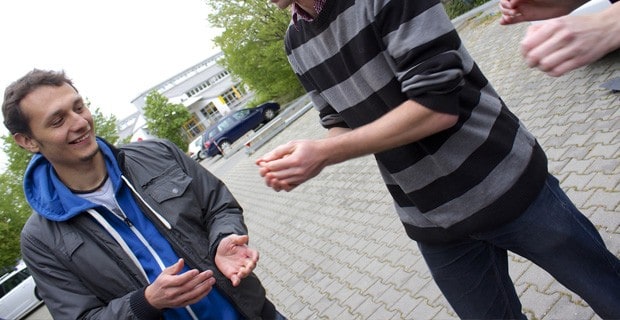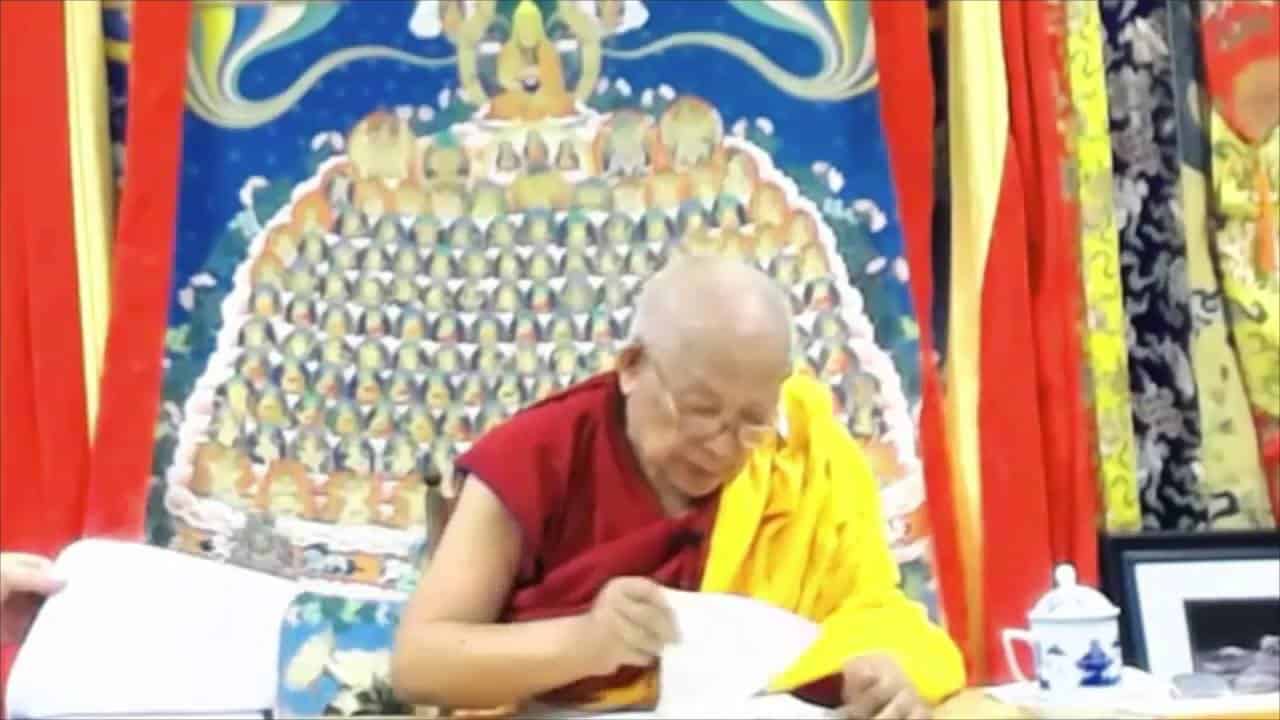Chapter 11: Verses 251-258
Part of a series of teachings on Aryadeva's 400 Stanzas on the Middle Way given on an annual basis by Geshe Yeshe Thabkhe from 2013-2017.
Motivation from Shantideva’s Engaging in the Bodhisattva’s Deeds
- The precious opportunity to accumulate virtuous karma
- Spirit of awakening
- Remembering and repaying the kindness of others
- Making living beings your principal focus
Verses 251-258
- Refuting that present and past phenomena exist in future phenomena
- Phenomena truly existent in the past cannot truly exist in future
- Why truly existent phenomena can only exist in present
- Impossibility of impermanence if past, present, and future are substantially existent functional phenomena
- Refuting a substantially existent past
- Refuting a substantially existent future
Geshe Yeshe Thabkhe
Geshe Yeshe Thabkhe was born in 1930 in Lhokha, Central Tibet and became a monk at the age of 13. After completing his studies at Drepung Loseling Monastery in 1969, he was awarded Geshe Lharampa, the highest degree in the Geluk School of Tibetan Buddhism. He is an emeritus professor at the Central Institute of Higher Tibetan Studies and an eminent scholar of both Madhyamaka and Indian Buddhist studies. His works include Hindi translations of The Essence of Good Explanation of Definitive and Interpretable Meanings by Lama Tsongkhapa and Kamalasila's commentary on the Rice Seedling Sutra. His own commentary, The Rice Seedling Sutra: Buddha’s Teachings on Dependent Arising, was translated into English by Joshua and Diana Cutler and published by Wisdom Publications. Geshela has facilitated many research works, such as a complete translation of Tsongkhapa’s The Great Treatise on the Stages of the Path to Enlightenment, a major project undertaken by the Tibetan Buddhist Learning Center in New Jersey where he teaches regularly.


